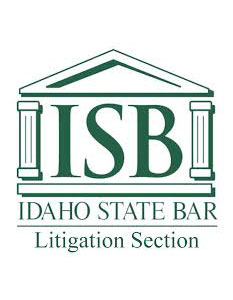Navigating the complexities of car accident claims involving government vehicles in Idaho can be particularly challenging. When a vehicle operated by a government entity is involved in a collision, the legal landscape shifts significantly compared to accidents involving private parties. Understanding these nuances is crucial for anyone seeking compensation and justice in such cases. The process involves unique legal considerations, and the pathway to obtaining fair compensation may differ markedly from other types of accident claims.
Legal Framework for Government Vehicle Claims
In Idaho, claims involving government vehicles are subject to specific legal regulations and procedural requirements. When a government vehicle is involved in an accident, different rules come into play compared to accidents with private vehicles. The principle of sovereign immunity, which protects government entities from many types of legal claims, is a significant factor in these cases. However, there are exceptions to this immunity, particularly in cases involving negligence by government employees or agencies.
To successfully pursue a claim against a government entity, one must follow a set process that includes timely notification and adherence to strict deadlines. The Idaho Tort Claims Act governs these proceedings and outlines the procedures for filing a claim. This law establishes the framework for how and when a claim must be filed, including requirements for notifying the appropriate government agency within a specified period following the accident.
Challenges in Filing Claims Against Government Entities
One of the foremost challenges in filing claims involving government vehicles is dealing with the complexities of sovereign immunity. This legal doctrine essentially limits the ability to sue government entities unless specific conditions are met. In the context of car accidents, the doctrine means that there are more hurdles to overcome compared to suing a private individual or company.
Additionally, government entities often have their own legal departments and insurance policies that handle claims. This can create an additional layer of complexity, as these departments are accustomed to managing claims against their own vehicles and personnel. Their goal is to minimize the financial impact on the government, which can translate into a more difficult claims process for injured parties seeking compensation.
Gathering Evidence and Proving Negligence
In any car accident claim, gathering evidence and proving negligence are essential steps. This becomes even more intricate when a government vehicle is involved. Establishing that a government employee was negligent requires showing that the driver failed to meet the standard of care expected of a reasonable driver and that this failure directly caused the accident and resulting injuries.
Evidence collection in such cases often includes obtaining police reports, medical records, and eyewitness statements. Additionally, the involvement of government vehicles may necessitate further scrutiny of internal agency policies and driver training records. Thoroughly documenting all aspects of the accident and the government’s role is vital for building a strong case.
Understanding the Compensation Process
Compensation in cases involving government vehicles may differ from claims against private parties. Government entities often have caps on the amount of compensation they are required to pay, which can limit the damages awarded to plaintiffs. Furthermore, there may be specific procedures for negotiating and settling claims that differ from the more straightforward processes found in private sector claims.
In Idaho, the compensation process typically involves submitting a detailed claim to the appropriate government agency. This claim must outline the damages sought and provide evidence supporting the claim. The agency will review the claim and may offer a settlement or dispute the allegations. If an agreement cannot be reached, further legal action may be necessary, which can include filing a lawsuit in court.
Legal Representation and Advocacy
Given the complexities involved in claims against government vehicles, having skilled legal representation is crucial. An experienced attorney can guide individuals through the intricacies of the Idaho Tort Claims Act, assist in gathering and presenting evidence, and advocate for fair compensation. Legal representation is especially important when navigating the often intricate negotiation and settlement processes with government agencies.
At Hepworth Holzer, LLP, we understand the challenges and intricacies involved in car accident claims involving government vehicles. Our team is dedicated to providing the support and advocacy necessary to help clients achieve the best possible outcomes. We work tirelessly to ensure that our clients’ rights are protected and that they receive the compensation they deserve.
The Importance of Timely Action
In cases involving government vehicles, timely action is critical to ensure that your claim is handled properly. The Idaho Tort Claims Act requires that claims be filed within a specific time frame, which is often shorter than those for private claims. Missing these deadlines can result in the dismissal of your claim, regardless of the merits of your case. Therefore, it is essential to act swiftly and seek legal counsel as soon as possible after the accident. Delays in filing or responding to claims can significantly impact your ability to recover damages, making prompt action a key component of a successful legal strategy.
Rules of a Personal Injury Claim Choosing a Personal Injury AttorneyRelated Videos
Navigating the Appeals Process
If a claim against a government entity is denied or if the compensation offered is inadequate, navigating the appeals process becomes necessary. The appeals process in these cases can be intricate, often involving additional layers of review and legal procedures. An experienced attorney can provide invaluable assistance in handling appeals, helping to present a compelling case for reconsideration. This process may involve further negotiations or presenting additional evidence to challenge the denial and seek a fair resolution. Having professional guidance throughout this stage can significantly enhance the likelihood of a favorable outcome.
Pursuing Justice and Fair Compensation
Pursuing justice in cases involving government vehicles requires persistence and a thorough understanding of the legal framework. While the process can be complex and demanding, it is essential for those who have been injured or affected by accidents involving government vehicles to seek fair compensation. The path to achieving this often involves careful preparation, strong evidence, and dedicated legal representation.
If you or a loved one has been involved in an accident with a government vehicle in Idaho, it is crucial to consult with a knowledgeable attorney who can navigate the complexities of your case. Hepworth Holzer, LLP is here to offer the experienced legal support you need. Contact us today to discuss your case and learn how we can help you seek the justice and compensation you deserve.










